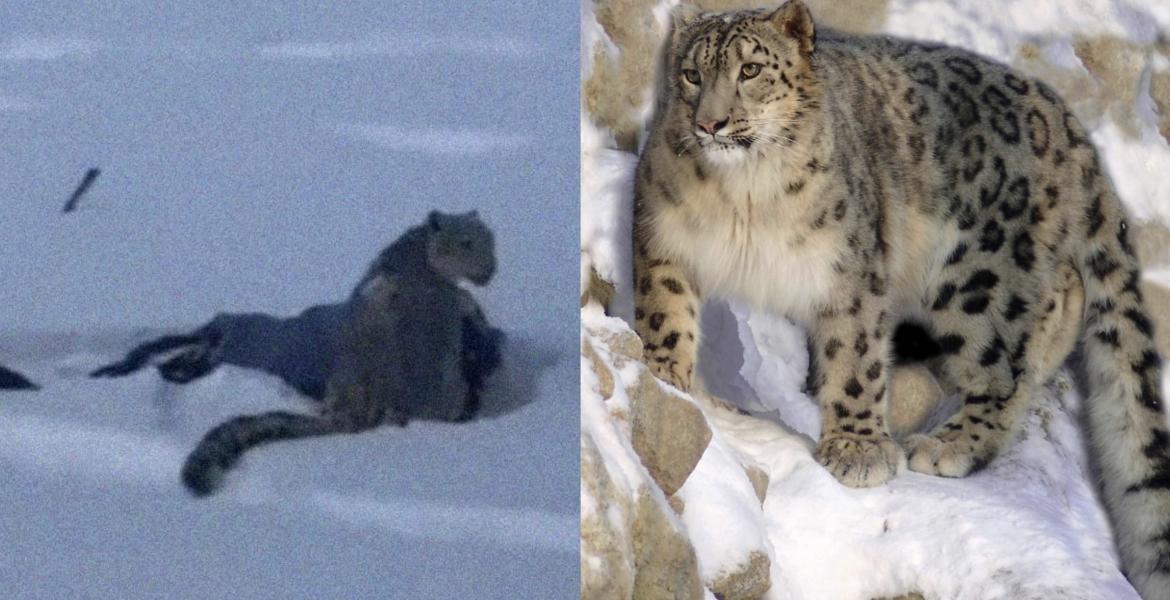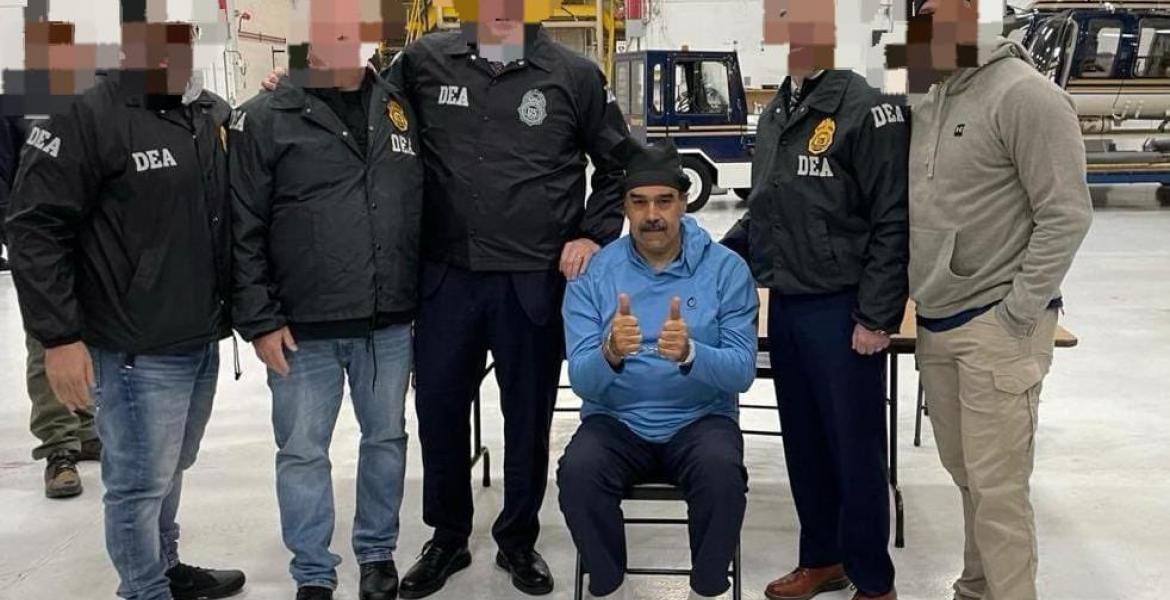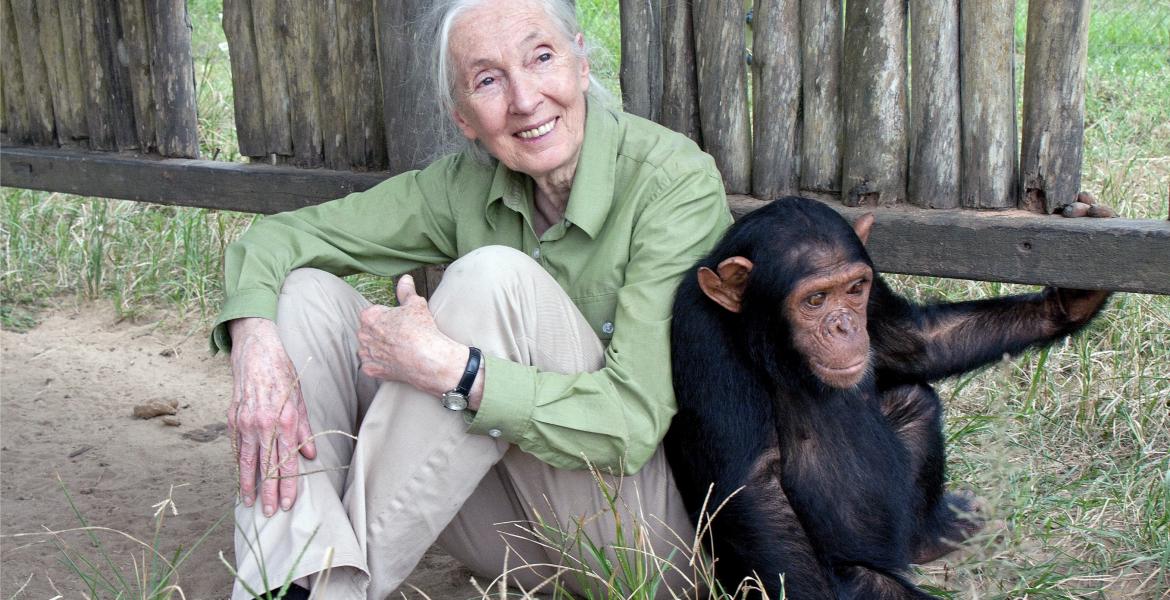When Estelle Declercq heard from a friend that something happened in France this past Friday, she rushed to find a way to contact her family, especially her sister. Declercq, an international French student at Angelo State University, along with her fellow French comrades, Lydia Baahluooul and Raphalle Thomas, were away on a camping trip at Big Bend Ranch State Park. They couldn’t get service on their cell phones, so they rushed to a nearby town.
“We were shocked,” Baahluooul recalled. “The first thing we did is go somewhere to find Wi-Fi and get connected to our family.”
When the international students stopped and finally saw the news, Baahluooul said it was hard for them.
“We texted everybody, but nobody answered; so we were freaking out,” the French woman said.
No one answered because of the 7-hour time difference between Texas and France.
Declercq said, “I was just terrified because I didn’t have news of my sister. I know that she was there.”
As she thought of her sister and that moment when eight extremists coordinated an attack on several popular Paris locations Friday night, Declercq had to take a moment to compose herself as emotion overtook her during an interview with San Angelo media Monday afternoon.
Luckily, her sister was not among the more than 100 people who lost their lives in what’s being called one of the worst terrorist attacks to hit Europe in 10 years. The eight terrorists attacked Stade de France, where Germany and France faced off in a soccer match, Le Petit Cambodge, Rue de la Fontaine au Roi, La Belle Équipe, Boulevard Voltaire and Bataclan.
Although Baahluooul doesn’t live in France, nor did she have family at any of these locations, she did have a friend who was scheduled to work at Stade de France.
“I know that he would be there for the game between France and Germany,” said Baahluooul. “I texted him, but he did not answer.”
However, Baahluooul said her friend’s sister did contact her to say the friend was okay. She also finally heard from the young man.
“I heard the news from him this morning, and he said he was fine and wasn’t at the stadium. He just didn’t want me to worry about him, and that’s why he said he wasn’t there,” she explained.
Like Declercq, Thomas has a sister living in Paris, and she resides close to where the attacks took place. The French student also worried about her sister. She soon learned her sister was fine. The young woman was in her apartment overcome with shock as well. Everyone kept calling her to ensure her safety.
“You [could] see she was not understanding what was happening,” Thomas stated. “Everyone was calling her and telling her to be safe. She was in her apartment, so it was hard having people worry about her. That made her worry more.”
The French Face the After Effects
Since the attack, everyone is staying glued to the news to find updates on the investigations taking place. ISIS is claiming responsibility for this terror, and suspects have been identified. President Francois Hollande deemed the shootings and bombings "an act of war," and France is taking security measures it has not had to take since World War II.
"We will lead the fight, and we will be ruthless," the French President said early Saturday.
Although the security measures and words have helped get the French people through this tragedy, many of them, including the ASU international French students, are having to worry and struggle with what they’re hearing about their country from so far away.
“I feel relieved because my family, they are all safe,” said Baahluooul. “At the same time, I feel sorry for all the families of the victims.”
Additionally, Baahluooul said one of her friends told her France looks like its been at war.
“She lives in France but works in Belgium, and when you cross the border, there’s no control,” the French student explained. “But right now, they’re controlling every car and every person. They check out everything, so it’s weird. She said it’s strange when this happens to your home and your country, even though you see it elsewhere.”
Estelle said, “My sister, she doesn’t dare go to work anymore. There’s nobody in the street; nobody in the subway. It’s empty. They feel there might be another attack.”
Even though Americans and ASU faculty, staff and friends have been supportive to the three international students, they can’t help but feel a strong sense of homesickness.
Declercq, a student from Paris Dauphine University, said she’s only in San Angelo for one semester whereas Baahluooul and Thomas, both students from University of Valenciennes and Hainaut-Cambresis, are here for one year.
“I’m appreciating all the support,” Baahluooul said. “We’ve received a lot of emails from our friends here asking if our families are safe. We really appreciate that.”
That may be the case, but Thomas said after what happened, she feels she needs to go home to be with her family so she can feel better after what happened.
She stated, “I want to go back to be with my family. Of course the people in the U.S. are understanding, and they have thoughts about us, but they don’t really understand and think about it as we do because we’re being touched by it. I feel like I want to be with French people so we can all understand each other about this. At the same time, I know my parents are really happy I’m not in France right now. I feel more safe here even though it can happen anywhere.”
Interim Associate Dean Sharynn Tomlin, who was the previous director of the International Studies Department at ASU, said although ASU has about five students here from France, there are no study-abroad students in the country at this time.
“Luckily, we didn’t have students who were involved, but my heart really does go out to Cal State that did,” she said. “You always worry about something like that happening to your students, and that must be very heartbreaking for them.”
Tomlin added that events, such as the one that took place in France, do change the way ASU handles study abroad, so “they’ll wait to see what happens in the future.”
“We hope there are no future attacks of this type, but it certainly weighs heavily on our decisions,” Tomlin stated.
For instance, with the issues in Mexico, ASU did not send and still does not send study abroad students to Mexico or Africa, even though faculty hopes that changes soon.
“We are very cautious about those things,” noted Tomlin. "Student safety comes first."
Tomlin also said ASU will do what it can to provide support and resources for the French students to help get them through this difficult time.
One Couple Copes with the News
Jennifer Durgeat, a San Angelo resident whose husband, Nicolas Durgeat, is from Paris, France, said her mother-in-law lives 1.5 hours from Paris in a small village called Pithiviers. Nicolas’ brother and sister both live in the Normandy region, and they have numerous friends and old co-workers who live in Paris.
“We also have several family-owned apartments throughout the city,” Jennifer Durgeat said.
The couple originally met online in 1998 and married in 2006. They moved to San Angelo, Jennifer’s home town, after living in Germany for six years while she finished serving in the military.
“I’ve walked the streets of Paris…to include the one where one of the attacks took place,” Jennifer said Saturday. “This city is beautiful and magical, and absolutely does not deserve this terror. Fortunately, for me, all of my family are alive and safe. However, the tragic events of Nov. 13, 2015 have left so many families and fellow Parisians heartbroken and grieving for that magical way of life that existed less than 24 hours ago.”
Jennifer said when she heard about the terrorist attacks, her reaction was one of solemn acceptance.
“I accept that terrorism is part of today’s world, and honestly, nothing surprises me anymore,” she said.
The woman “thanked God," however, for social media because within a matter of a few hours after the attacks, the Durgeats were able to learn family and friends were safe.
“I’m holding up much better knowing that my loved ones are safe,” Jennifer said. “[I’m] a bit heart sore that the city where my love grew up is suffering so greatly. The only words I have to offer to the people of France are that they’re not alone. We share this with them and we will be behind them when it comes time to deliver justice.”
Justice is a word on many minds, including Nicolas’. His country, which once offered open borders and free travel, is now taking measures necessary to avoid another attack. However, he clarified that the borders aren’t closed, as many journalists are reporting.
“What the French president meant was that controls were being reinstated at the borders,” Nicholas said. “To give you a clear understanding, it went from a border like going from Texas to Louisiana, easy, no stop…with identity controls and vehicle checks. What is new though is the “State of Emergency,” which is basically Martial Law.”
This Attack Comes as No Surprise
The ASU French international students and one local expert on ISIS who understands what’s taking place in the middle east said this attack on France comes as no surprise.
“We were expecting some attacks after the one in January,” Declercq said. “For example, at my university, every time we entered the building, we had to show our ID to prove we are students there. So we were expecting some kind of attacks, but after a while, we felt that it was over; but it’s not.”
Dr. James Phelps, assistant professor with the Department of Security Studies and Criminal Justice at ASU, has studied the Middle East, Al Qaeda, Iraq, ISIS, and the happenings in Europe for decades. He is also retired Navy, and has written What Happened to the Iraqi Police?: Applying Lessons in Police Democratization Successes in West Germany and Japan and Border Security (co-written with Jeffrey Dailey and Monica Koenigsberg).
Dr. Phelps said what happened Friday was expected.
“France, for a very long time, has been a target for the the radical fundamentalist Islamic terrorist groups,” explained Phelps. “When you look at France, you have to go way back in history, and you realize that the French have long been colonials of the Middle East and of North Africa. They have been the colonizers of those areas: Beirut, Lebanon, that whole area—French. North Africa, when you talk about Algiers, Tunisia, and Libya—French.”
Phelps also explained that back when the Algerians were looking for liberation during the second World War, there were a great deal of terrorists and terrorist activity in Algeria.
“There is a great lesson on how to overthrow colonial oppressors that come from the movie The Battle of Algiers,” Phelps noted. “It’s a great terrorist propaganda film about how to defeat the in-place government systems and the military.”
The result, Phelps stated, is that France gave Algeria its freedom; but because there was still a colonial relationship there, those people came to France, but not as if they were French citizens.
Phelps stated, “So you have had an increasing population of Muslims in France since the 1950s--more so than Germany, Spain, or the other European nations, and these people have developed enclaves, groupings in little areas. They have not assimilated.”
Investigators over the weekend identified suspects in these enclaves Phelps spoke of.
“Since the Syrian Civil war started, leading to the outbreak and growth of ISIS, in Syria and Iraq, what has happened is there are huge numbers of French and German Muslims choosing to go to Syria and fight against [Bashar] al-Assad or fight on behalf of ISIS. Obviously, there’s nothing going on in West Africa for them to join,” Phelps stated.
The young men and women who join groups like ISIS are marginalized and non-assimilated young men with no hope for employment or opportunities, Phelps noted.
He explained, “Now in that culture, as a man, you can’t marry unless you have a house or an apartment; you have to have a job that funds that house or apartment. You have to have already purchased and placed in that house all of the furniture necessary and all of the house goods necessary to have a fully functional household before your spouse moves in. You have to have savings too. You also have to pay the price of the dowry to dad.”
Therefore, for 18- or 19-year-old men in an environment where there is a 40 or 50 percent unemployment rate for people who look Muslim, they know they will never get a job that generates enough income that will allow them to move into the mainstream of establishing a family, being a part of the community or fathering children. So what do they have to live for?
With the Islamic State, which is what ISIS has declared itself, “They’re the wealthiest terrorist group in the world. They’re making hundreds of millions of dollars a day in oil revenue. They’re undercutting everyone else in the market and even selling back to al-Assad’s government,” stated Phelps.
These ISIS leaders are wealthy middle or upper class males who have the money and technological savvy to entice the younger men and women into martyrdom and with promises of financial improvement and celestial rewards. They make these young people believe they are supporting a bigger cause—all in the name of religious fervor, Phelps noted.
Additionally, in addition to this lack of acculturation amongst the Muslim groups in countries like France, Phelps said the State of Islam is also 600 years behind Christianity, which explains the archaic ideology we associate with that religion. The fight between the Shiites and the Sunnis is similar to what took place between the Catholic Church and the Protestant Church during the Reformation in the 1600s. Unfortunately, that fight is expanding across the borders into Europe.
Where Al Qaeda declared war against all westerners and calls for attacks on the western world, ISIS calls on its soldiers to go back to their western world countries after teaching them to fight and providing them with the resources to do so. This is what makes the Islamic State such a threat, and more powerful at this time.
“This is not new. This is a problem that has been developing for a period of time, and it’s not ending either,” Phelps noted. "President Obama said ISIS is contained, but that's just not true."
Overall, Phelps said France knew this attack was coming and officials took the measures necessary to stop attacks, especially after the attempted train attack in January, and after Charlie Hebdo. However, there’s no way to stop every attack.
“You can’t protect every soft target,” explained Phelps. “Not without paying a huge financial burden to do that, as well as a social burden about what constitutes and what does not constitute a secure society. You have this environment that’s constantly changing. You can’t identify every person. You can’t constantly track everybody.”
He added that had France not known, and had officials not had security measures in place, the death toll would be much higher.
“They knew what they were looking for,” Phelps continued. “They had some idea of what security measures had to be taken at the stadium. Otherwise, those guys would have not been frisked. They would have made it into the stadium, and you would have had three separate bombings in the stadium, which would have just led to a horrendous stampede.”
Phelps finalized by saying letting Syrian refugees across borders adds to the danger of more attacks because countries cannot know exactly who is coming across. However, people would not agree with the solution he and other experts would recommend, which would have to do with controlling the border. In Europe that would be both tricky and problematic. However, as long as the borders in Europe remain open and free, another attack is inevitable.
Phelps theorized that “Germany and Russia are next.”
Megan Holmquest contributed to this story.
Subscribe to the LIVE! Daily
Required






Comments
Listed By: milo otis
Well it seems like everyone has a solution to the problems in the middle east , it reminds me of that old song every body wants to rule the world . People need to shut up and follow the president ! They are so fortunate to live in America , if they were living in one of those horrible places , their heads would be chopped off in a flash . People rush to call on the president to send the armed forces into battle , whose blood would be shed ? We know that the U.S. can wipe out all of Isis in a matter of years , but then this area is so unstable , some other group would quickly take up the cause . This whole area is a powder keg ready to blow up . That being said I want to thank Dr. Phelps for serving proudly in the armed forces .
- Log in or register to post comments
PermalinkListed By: Dallas Smithson
"People need to shut up and just follow the President!" We're not a dictatorship, so people don't need to do what you suggested. Stop drinking the Obama Kool-Aid and wise up.
- Log in or register to post comments
PermalinkListed By: milo otis
I don't know what president Barrack Obama drinks , but i know what i like . I prefer rot gut shine , we make it in the backyard . We use the wash tub cause we don't use it much to bathe in durin the wenter . Ma only uses it to wash once a month , and the mangy mutts don't a need it in the wenter ither . Wuts a tater ship any way ? Is it sumthin they sell at the greezy spoon restorant ?
- Log in or register to post comments
PermalinkPost a comment to this article here: